The Association of Related Churches (ARC)—one of the largest church planting organizations in North America—is coming under fire for claiming that payments to ARC from its member churches are voluntary.
In an interview last October with The Roys Report, ARC President Greg Surratt denied a report that a former ARC church in Florida, NewSound Church, was contractually obligated to pay ARC 2% of its tithes.
“There is no legal agreement that ARC gets 2% . . .” Surratt stated in the interview. “(O)nce (an ARC church) is planted, it’s its own church. And they are encouraged, if they want to, to give toward planting new churches. But there is no legal, you know, whatever on that.”
Surratt further stated, “I can say that churches choose to give, you know, whatever they want to, towards church planting with ARC.”
However, The Roys Report has obtained two contracts between ARC member churches and ARC, which indicate otherwise.
Your tax-deductible gift helps our journalists report the truth and hold Christian leaders and organizations accountable. Give a gift of $30 or more to The Roys Report this month, and you will receive a copy of “Hurt and Healed by the Church” by Ryan George. To donate, click here.
Both contracts—one from 2013 and one from 2019—were shared by former or current ARC pastors who asked to remain anonymous for fear of retaliation from ARC. However, The Roys Report has confirmed the identities of the pastors and their churches.
The contracts state that ARC gave each church an initial loan between $30,000 and $70,000 to launch. Both contracts state that the church plant must pay ARC 10% of its tithes and offerings until the loan is repaid.
After the loan is repaid, each contract requires the church to “send an on-going amount of 2% of income of monthly tithes/offerings to ARC for future church plants.” The 2013 contract calls the 2% payments a “membership fee.”
The Roys Report reached out to Surratt to explain the apparent contradiction. Surratt said he’d “love to respond” and asked us to hold the story for several days due to his busy schedule. We agreed to hold the story for a day but asked Surratt to respond by end of the day Tuesday. Earlier today, Surratt said he would respond in two hours, but later emailed, “I’m not going to be able to respond today.”
Consequences for default
In addition to detailing that a percentage of church income must go to ARC, both ARC contracts given to The Roys Report detail substantial consequences if the church defaults on its ARC loan.
The 2019 contract states, “If (redacted) is unable to pay the balance of their ARC investment, ARC has first rights to the existing assets of the Church.”
It further states that after “all liquidation of remaining assets are applied to the ARC fund balance,” the church planting pastor and the “sponsoring church” will “together be responsible for repayment of the remaining balance of the funds pertaining to this Financial Agreement.”
According to a sample ARC “sponsoring church” letter given to The Roys Report, a sponsoring church serves like a co-signer on ARC’s loan to a church plant. The letter states that the sponsoring church “will be obligated” to pay back money given to a church plant if the church plant is “somehow unable to return this money.”
The 2019 contract reiterates this obligation, stating: “The Sponsoring Church is responsible for repayment immediately if the Church Plant is deemed a hardship case by ARC.”
The contract also requires that the church report “all monthly statistics, including tithes & offerings, attendance, and salvations” at Church Metrics—an online app offered by Craig Groeschel’s Life.Church.
The 2013 contract is similar. However, instead of the sponsoring church being the first entity responsible to repay the loan should the church default, the 2013 contract places the burden on the church planting pastor.
“In case (redacted) Church should not be able to meet its obligations as an organization, I, (redacted), agree to repay ARC the balance of the loan back monthly at a rate of 5% of the beginning balance until the total loan is repaid,” the contract states. “Example: If the church owes $10,000, the Pastor would pay ARC back $500 per month until the loan is repaid.”
ARC pastors respond
The Roys Report first reported Surratt’s statements about church payments to ARC being voluntary in a podcast published last week about ARC.
The statement prompted immediate backlash from former and current ARC pastors online.
“I am an ARC planter,” stated one pastor with the handle “Current_Product_8283” in a Reddit group called “r/AllaboutCOTH.” (COTH is an acronym for Church of the Highlands, the ARC’s flagship megachurch in Birmingham, Alabama.)
“If we don’t pay our loan back they will take it from our sending church. It 100% is NOT optional. Since we have planted I have received maybe 3 calls from them 2 of them were asking about our giving because it wasn’t enough.”
Similarly, Jeff Thompson, a former ARC pastor from Canada who was featured in the recent The Roys Report podcast, stated: “When we did it, we also had to provide a sponsoring church as a guarantor for the loan. Our home church refused because they found it shady. We had to find another church to sponsor our loan.”
Another pastor in the Reddit group complained that he wanted to leave ARC because of recent scandals involving pastors who fail morally but couldn’t because his church still owes ARC money.
The most recent moral falls among ARC pastors have involved Jeremy Foster, a former pastor at an ARC megachurch in Houston, and Tavner Smith, whose Tennessee megachurch used to be closely affiliated with ARC.
A video reportedly from 2018 recently surfaced online, showing ARC Executive Director Dino Rizzo praising Smith for his integrity and explaining that Smith is a “coach” for other ARC pastors.
Rizzo, who also has sexual scandal in his background, urges congregants at Smith’s church to donate to ARC. And he states that because of peoples’ gifts and the “generosity of your pastors,” ARC has been able to plant 776 churches. (Now, the number is around 1,000 churches.)
Other ARC pastors embroiled in sexual scandals include Micahn Carter, who was formerly at Church of the Highlands; Jason Delgado, formerly at Vibrant Church in Missouri; and Joshua Mauney of NewSound Church.
Currently, ARC or ARC executives are named in two lawsuits claiming that ARC acted negligently or covered up sexual abuse and harassment by its pastors.
Since The Roys Report began reporting on ARC several months ago, the church finder page at ARC has gone “temporarily offline.” According to a message posted to the page, ARC is in the process of “revamping our map.” The organization also says it is “in the process of verifying all the information for our church plants and church partners to make sure the map is as accurate as possible.
REDACTED Church Agreement with ARC – 2013
ARC-Financial-Agreement-2013REDACTED Church Agreement with ARC – 2019
ARC-Redacted-Financial-Agreement-2019-2PagesUPDATE: After this article published, Geoff Surratt, Greg’s brother who says he has no position with ARC, published a blog, claiming “ARC has never attempted to collect the 2% fee member churches are asked to contribute.” The blog also stated that in the spring of 2021, ARC changed its agreement with churches to say that the 2% was “strictly voluntary.”
Geoff Surratt told TRR he received the information from a friend “with first-hand knowledge of ARC’s current agreement with church planters” who didn’t want to be named.
TRR reached out to one of the pastors whose ARC contract we had obtained to see if ARC had informed him that the 2% payback to ARC was now voluntary. (The other contract was from a pastor who’s no longer with ARC.) He responded, “The answer to your question is no. The only call I believe I received last year was from Blake Billings asking why we had not raised our ACH giving . . .”




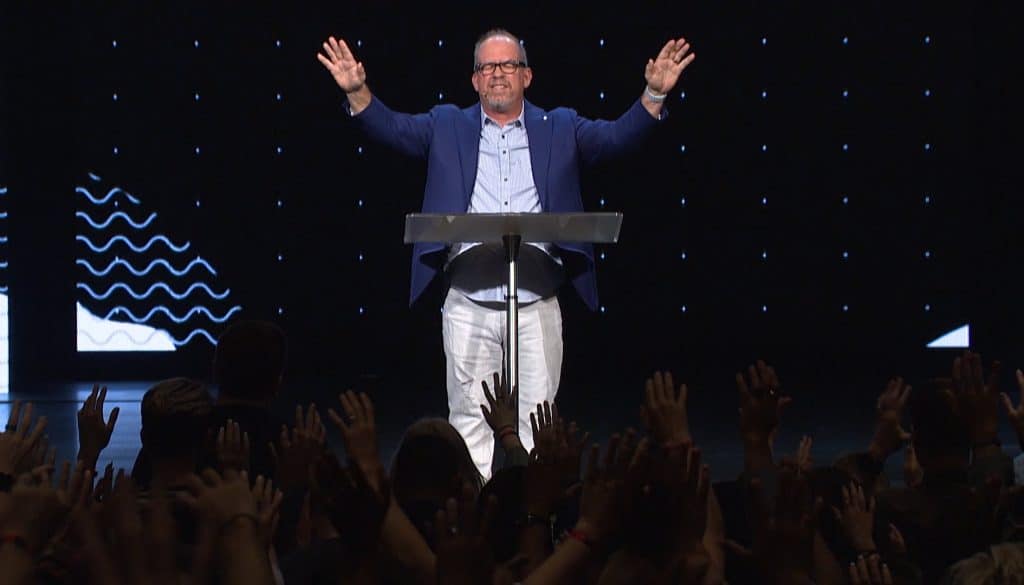
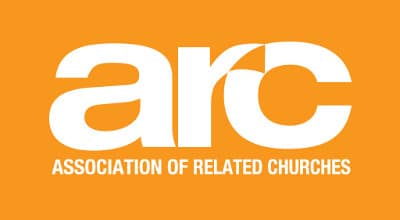
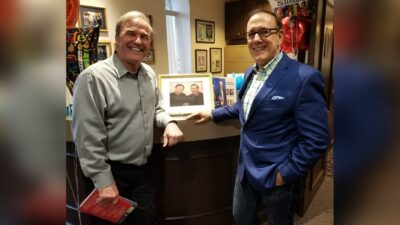




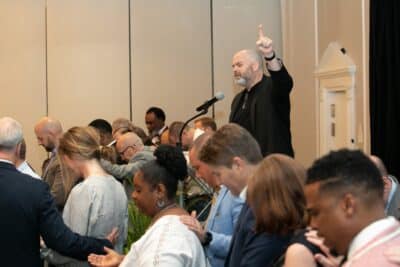
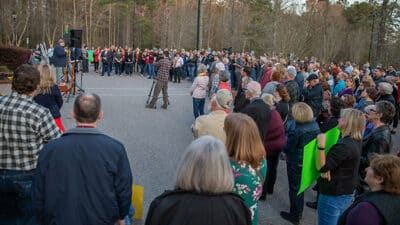

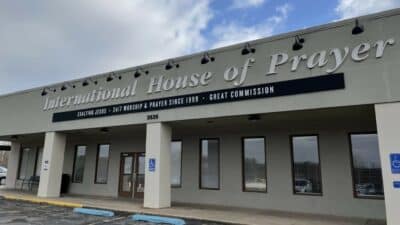






41 Responses
That’s a pretty large discrepancy between what Surratt said on record and what the contracts state.
Lying sons of the devil, I think is what Jesus would actually call these ARC execs. “How will you avoid hell?”
I don’t see a discrepancy between what Surratt said and the contracts reported in this article. The loan requires repayment. The 2% is following repayment of the loan, and seems to be a voluntary membership fee. If you want to continue as a member, you are expected to pay the 2%.
I’m not saying I agree with the model etc. But the 2% does seem to be voluntary.
I suppose, but I find the pastor being personally liable for repayment in the earlier contract to be at odds with the “spirit” of voluntary membership.
To be clear, you’re right. This is a contract where they probably are focusing on cranking out megachurches that quickly repay the loan and generate revenue. I’d be interested how often the pastor was held liable and how often the loan was forgiven when church plants fail.
I personally know a church planter who was not able to repay the loan – ARC did not hold him personally responsible for the loan. In fact, they’ve continued to encourage him & his family. This story may be salacious at first glance, but it’s rather one-sided. I know they gave them a little window to respond, but if truth & accuracy were truly the goal here, they would have waited until they could effectively communicate.
I don’t think you can tell from these contracts whether the “membership fee” is voluntary or not, because it’s not clear if the church plant can ever stop being a member once the planter signs up. The documents just say they will pay the 2% a year. I’m no attorney but to me the unqualified language here, with no conditions or limitations stated, implies that this payment is expected to continue indefinitely.
At least two pastors have told Julie they didn’t believe their payments to ARC were voluntary. Another is chiming in here saying they are. I wonder if planters are getting mixed messages about this. It could be to the benefit of the organization to have planters believe they have no flexibility here, even if technically they do.
What sayeth the Scriptures? Proverbs 22:7 (ESV): “The rich rules over the poor, and the borrower is the slave of the lender.”; Proverbs 22:26 (ESV): “Be not one of those who give pledges, who put up security for debts.”
What’s Surratt’s salary? Any organization asking for donations should provide this information.
I have asked for that information, but ARC does not supply it. ARC is a member of the Evangelical Council for Financial Accountability (ECFA), but so was Harvest Bible Chapel when James MacDonald was reportedly taking millions in church funds for himself. According to ECFA, ARC took in nearly $12 million in donations in 2020 and spent just over $11 million. There’s no breakdown of how ARC spent the $11 million, but here’s the link to ARC’s webpage at ECFA: https://www.ecfa.org/MemberProfile.aspx?ID=63390
Hi Mrs. Roys,
I called the IRS a few weeks back about the 501c3 financial filings of churches (in regards to JM asking for donations using pictures of “full time/pt employees” that are volunteers, not paid) and I was told that once a church is certified it is not required to release any financial information at all, to the IRS or its members.
I asked how the IRS monitors/confirms that the churches are following the 501c3 requirements and they responded “good question, I do not know”. I asked if that means it is an “honor system” and was told basically yes.
Which I find ironic since “The contract also requires that the church report “all monthly statistics, including tithes & offerings, attendance, and salvations””
Julie – I can give you my experience – As a ARC church that planted in 2011 I have never been under any obligation to contribute anything towards ARC – in fact there have been season when our church didn’t contribute anything (for various reasons including but not limited to lean time in our early planting days and during the shutdowns) and in the end we decided that 1% would be our long term commitment so that we could support individual churches. We are in good standing and have NEVER been approached about either decision – There is no one I trust more than Greg Surratt and his word. ARC has been so good to us as a church and pastor Greg has been an impeccable leader and man of God.
Once again, Ms. Roys, a thousand thanks for your careful work in documenting and exposing the lies and greed and immorality that burrow into our evangelical institutions like a poisonous root. To any sincere ARC pastors reading this, leave now. Disentangle yourself. The leaders of your organization demonstrate by their sexual immorality and lies and toleration of the same that they do not believe in their hearts that Jesus rose from the dead, and that they will appear before him to render account for deeds done in the body. But you still believe that, right? Leave. Of course it may cost you your church, and your job, and your home, and leave you scrambling to find menial employment because your knowledge of Greek and Hebrew and your love for proclaiming the Word do not translate into marketable skills. I know whereof I speak. But you will still have your integrity, and you will honor Jesus Christ, and the Lord God of heaven and earth will supply that which he knows you need.
Well said. And perhaps an urging to parishioners to vote with their feet and leave these churches affiliated with immoral leaders.
Greg Surratt is a man of excellent character and profound credibility, and I could find thousands of pastors and people who would agree!
Listen, I know I’m biased. I’m Greg’s son and have watched him live a life of integrity – faithful to his wife for 45 years, humble ministry leadership for 45 years, faithful Biblical preaching – I’ve seen it all up close and personal. And you are going to try to tear apart his reputation over this?
Both pastors quoted here are talking about the repayment of the interest free loan that ARC gave them. Can you produce a single example of ARC going after a church for 2% of their income after the initial loan is repayed? I’d love to hear those stories. I’ve only ever heard of churches gladly chipping in to help future church planters get the same coaching, resourcing and encouragement that they got.
Again, I’m biased – and I’m saddened by the few examples of church leaders that have fallen morally. We all need to learn from those mistakes. But they make up less than 1% of the churches that have been planted. There are hundreds of churches that are led by healthy pastors, serve their communities, preach the Gospel, and make disciples, but you don’t seem all that interested in talking to any of them.
Let me give another perspective. Greg Surratt is my older brother, and I worked for him for 14 years. While we no longer work together, we are close. If he lacked integrity, I’d know. He has terrible taste in food and his fashion choices are dicey, but he’s squeaky clean when it comes to money and morality. Nothing, not even a hint of scandal.
After I read the article I asked a bunch of ARC pastors if anyone ever asked for money beyond paying back the interest free loan they’d agreed to repay. Not once, not a dime.
Both of the agreements posted above are out of date. ARC changed its wording about a year ago. (I’m sure they’d be happy to provide a copy of the new agreement. They sent me the new wording and I’m not affiliated with ARC.) Even under the old wording, however, there was no penalty for not paying 2% toward future church plants. (All ARC overhead, including salaries, is covered by the churches represented on the Lead Team. Everything else goes into new church plants)
You mention talking to two or three ARC pastors in your article. I would imagine if you put an ask on Twitter you could have conversations with hundreds more. You might get a more rounded view of ARC’s culture.
You mention the high profile moral failures of a handful of ARC pastors. These men have harmed so many and are without excuse. It would be sad, however, to ignore thousands of life-giving stories because of the failure of a few. There are some predatory leaders and organizations out there, Greg Surratt and ARC are not among them.
I hear you, Geoff, and I get that you love and respect your brother. But these men that have “harmed so many” are associated with ARC.
How do you justify keeping a man like John Gray, who’s admitted to an “emotional affair” but has been accused of so much more, on ARC’s Lead Team. How does ARC explain the Micahn Carter debacle? I’ve talked to the woman he allegedly raped and her mother. Both say ARC leaders were informed of the alleged rape when it happened. How on earth does Church of the Highlands then bring Micahn to preach and lead at their church? And then, there are the two lawsuits alleging ARC leaders covered up sex crimes of pastors at Vibrant Church and NewSound. I could name more but I’ll stop there.
If Greg Surratt is a man of integrity, how does he lead an organization responsible for platforming so many wicked men? How does ARC reconcile what they’re doing with the qualifications for elders in Scripture. How could ARC Executive Director Dino Rizzo be considered a man “above reproach”? To this day, ARC has never even given details about the “inappropriate relationship” that caused Rizzo to resign from his megachurch.
Exactly, Ms. Roys, exactly! The responses by Greg Surratt’s relatives filled me with outrage, They brought to mind James MacDonald’s sons and and Ravi Zacharias’s wife and brother and daughter. I am thankful you responded and did not let such nonsense stand unopposed. ARC is rife with godless men who commit sexual savagery yet remain in the ministry. No person of integrity, no one who truly fears God, would have anything to do with foisting such foul fiends of darkness upon the fellowship of God’s people.
Paul, your statement, (“ARC is rife with godless men who commit sexual savagery yet remain in the ministry. No person of integrity, no one who truly fears God, would have anything to do with foisting such foul fiends of darkness upon the fellowship of God’s people.”) is so ridiculous. Making such a broad statement like this is not Christlike. Imagine one of your relatives made a moral mistake (and they have) then we use your same words to attack your family, including yourself. That would be like saying the entire lineage of the Lundquist family are full of godless men who commit sexual savagery. No one in that family fears God. ARC has thousands of pastors. Get a grip.
I’m an ARC planter and I can confirm that the 2% requested after our initial loan was paid back is completely voluntary. A church doesn’t have to pay that amount if they don’t want to remain affiliated with the ARC (I know a few who have chosen this route). But honestly, after the initial launch loan is repaid, churches don’t report their offerings in the church metrics platform anymore, so they could give any amount and ARC would have no way of verifying if their gift actually equaled 2% of general offerings.
There are fair questions being asked right now about moral failings within a small handful ARC Churches. But the idea that Greg Surratt lied about the 2% payment is demonstrably false and clouds these more important discussions.
The context of my discussion with Greg Surratt on Oct. 13, 2021, was whether ARC member churches have to pay 2% to ARC. It was not whether ARC churches can leave ARC and then forego paying 2%.
Here’s a transcript of our discussion. My initial question concerned Joshua Mauney’s former NewSound Church in Florida and whether NewSound paid ARC 2%:
Julie: So I’m told that ARC got 2% of the tithes, is that true?
Greg: That’s something I am not aware of. I can say that, uh, churches choose to give, you know, whatever they want to towards church planting with ARC. I don’t know that that was the case with NewSound Church.
Julie: But it wouldn’t surprise you if it was actually in some sort of legal agreements that ARC got 2%
Greg: No, no, no, that would surprise me. There is no legal agreement that says ARC gets 2%.
Julie: Okay, could that have just been in the local constitution they wrote?
Greg: I wouldn’t think it would be in, no. That’s a choice that they have they. That church was planted. ARC did the training. And once it’s planted, it’s its own church. And they are encouraged, if they want to, to give toward planting new churches. But there is no legal you know, whatever on that . . .
Julie: Okay. Is it unusual for a church—these 1,000 church plants—is it unusual for them to be giving money back to ARC or to be paying ARC in any way?
Greg: No, it’s not unusual. It’s not required, nor is it unusual—just part of the mission.
With all due respect Geoff, It would be difficult for ARC to know the magnitude of the moral failures because Michael Smith, the individual designated to receive the reports by the home office, does not return calls.
Here is my personal experience:
We planted a church with ARC. We began preparing in 2018 and launched on January 26 of 2020.
Six weeks into our launch, COVID shut down the middle school we were meeting in. Our church limped along, meeting online, until December of that year. However we ultimately had to make the tough decision to shut down.
The team at ARC had been nothing but amazing. When I communicated to them our decision, we received nothing but grace, encouragement and support.
“How are you doing?” “What do you and your family need?” These were the questions we got.
Even though we had repaid only small part of the investment, we were encouraged not to worry. In fact several ARC pastors even sent our family money to help us during a difficult transition.
So, from my lived experience, I do not see what’s spelled out in this article to be reality.
Thank you, this was what I was wondering about. The verbiage in the contract sounds like ARC could be rather punitive with church plants that don’t flourish.
Mark-
That is true.
The reality of what I and every other ARC church planter I know is very different than the picture that is being painted here. There probably could/should be better language used in the contract, but “punitive” is the exact opposite of what I experienced in real life.
I respect your attempt to be a watchdog for morality and integrity in church leadership. I believe every pastor should strive to live a life worthy of their calling and to be above reproach. The overwhelming majority of ARC churches and pastors are doing things the right way. I am in no way excusing those that have fallen short. However, this article isn’t it. I know Greg Surratt and he has a decades long track record of leading with integrity and high moral character. Your comments come from an interview that he was *willing* to participate in (how rare is that?! knowing the potential repercussions of being misrepresented) and he spoke truthfully and honestly with you. Just because pastors sign an agreement doesn’t make it *legally* binding. The culture of ARC (and Greg) is one of compassion and generosity. I don’t think you will find one pastor that would say ARC went after them for an ongoing 2%. The spirit of this is, “Hey, you benefited from being an ARC plant so if you want to stay and continue to pour back into other church plants here is what would be the target.” Keep in mind every church’s 2% goes directly to helping other churches plant. By the way, ongoing missional giving is nearly universal in the majority of denominations in the US. This just doesn’t hold water at all. Pastor Greg is the real deal. This is gotcha journalism at it’s best, and it discredits any valid work you may be doing elsewhere.
“Just because pastors sign an agreement doesn’t make it *legally* binding”
I assure you it is legally binding, whether ARC choses to enforce the terms or not. These are signed loan agreements.
Definitely not a lawyer, but it could be argued that since the terms of the agreement are too vague that this could be impossible to hold up. There is a lack of consideration. However, the point is that ARC has never legally enforced this agreement. What loan have ever heard of that is a simple 1-pager document like this? This is a Kingdom minded agreement that was established to propel the mission and vision forward to plant other churches.
Seems like 2% is voluntary if you choose to stay with ARC, English is my second language but even I understood that clearly by reading the above contract. I wonder what is the alternative motivation behind this article. Or a better question who is motivating this article.
Not sure what you’re implying, but what part of “agrees to send an on-going amount of 2% of income of monthly tithes/offerings to ARC” sounds optional to you?
In practice it is voluntary.
The docs do not make it sound that way, but if it’s not voluntary where are the pastors claiming that ARC came after them for the 2% when they didn’t do it?
I’m fairly certain you’ll find zero examples of that.
Instead, you’ve now heard from multiple pastors who have told you, from personal experience, that it’s not enforced like that.
Are we lairs too?
Hello, ARC Church Planter here.
I spent time carefully responding to your article, but it would not allow the post because it was too long (300+ words). It was deleted. Please forgive the brevity in an attempt to be under 300:
1.) ARC is a network, not a denomination. It does not have a contractual or legal authority over its autonomous network churches. Most things are “voluntary” (including the 2% Pastor Greg Surratt accurately mentioned).
2.) One major exception: ARC gives money directly to individual churches to help them “launch”. In this scenario a contractual obligation is formed between the new church receiving funds and ARC. The church agrees to “reinvest” the money it received (over a period of several years) so more churches can be planted. The “contracts” you posted and the story shared of ARC contacting a local church about late contributions were all examples of this arrangement. Also, if/when the local church cannot re-invest the money it received, the pastor is not personally liable (at least as of 2015). The sponsoring church is committed to cover the financial shortfall. This contractual agreement seems clear, fair and effective.
3.) AFTER a church is fully reinvested the contractual relationship is over. The autonomous local church can choose to continue affiliation with ARC and voluntarily send a 2% contribution. After reinvestment an autonomous local church can simply choose to leave the network, anytime, with no financial or legal recourse. That’s the definition of voluntary.
4.) Your site says, “The Roys Report seeks to foster thoughtful and respectful dialogue.” I think you were several steps away from “respectful” in regards to Pastor Greg Surratt (who respectfully agreed to talk to you repeatedly) and cares deeply about God and people. I think you are missing the mark here in multiple ways.
Thank you for your response Scott. You are incorrect on #4, though. I reached out to Greg for comment and even held the story for a day to give him ample time. But after saying he would respond by a certain time, Greg then emailed to say he would not be able to respond that day. As I hope you can appreciate, we cannot hold stories indefinitely for sources to comment.
@Julie, yes, I saw that outlined in the article. I can appreciate you not being able to hold a story for a longer time period but that wasn’t really the point I was making… it does sound like he was willing to talk with you again and was attempting to clear the time. I can see why you published as you did, but that doesn’t undo the fact he was willing to clear the time for another conversation. I can understand it from both sides but I don’t think it invalidates point #4 above. Grace to you and yours Julie.
As a former member of Seacoast, I saw and heard about lots of questionable practices. When questioned or confronted they flip it back on the person and pass blame even if lying is needed in order to convince people. That person who tried to call them out then gets shunned, therefore people are afraid to ever confront.
I found that true too, I moved in 2018 and left. Right now Im watching the messed up church talking on Surrats Easter talk which was very irreverent .
Finding fault with others who seek to promote the Church of Christ is discouraged in multiple places in the gospel. Yes, offering correction when needed is appropriate but only if such correction is done from a place of love and not envy. This entire screed appears based on envy over the success of ARC, which should be celebrated rather than criticized.
Interesting that it appears that only supportive comments get posted and ones offering biblical correction to your positions seem not to be reflected. I suggest that rather than looking for fault in other Christian organizations you seek to find common ground for the advancement of Christ’s Church.
This is just sad that some Churches and their services in Houston are taking advantage of the people in their membership and community. That is why I am very thankful to Lighthouse church, https://g.page/r/CYyKpmC27DayEBA a true church that really loves their members!
I was in Surrat’s Seacoast church when he was planning the program. Then he went to work full time on it and left his children in charge of Seacoast, I never got any teaching from them soon I left. So if that is church planting it doesn’t work.
This is just sad that pastors do such a thing! That is why I really love the Churches in North Houston specially https://lhhouston.church/ because they are true and are really concerned for the community!